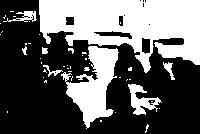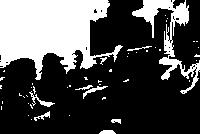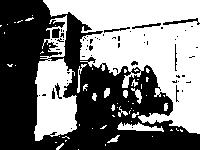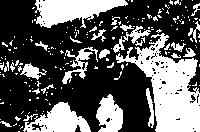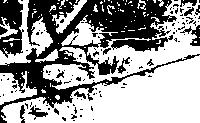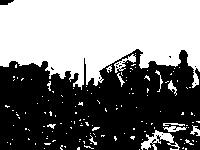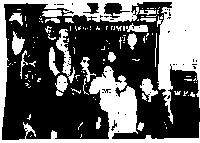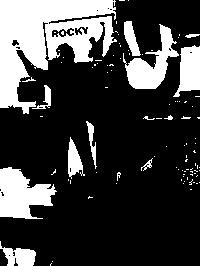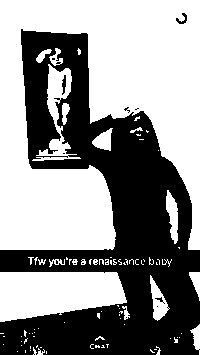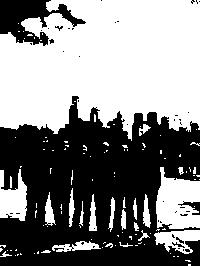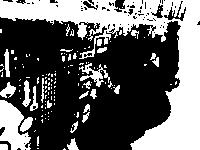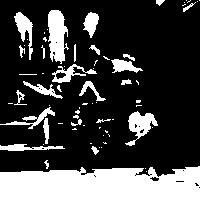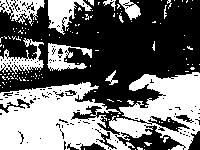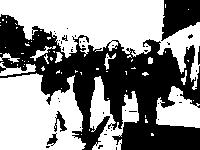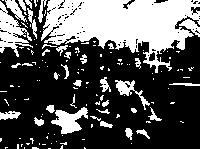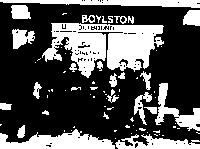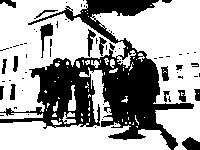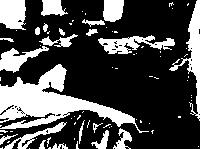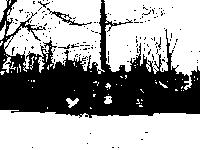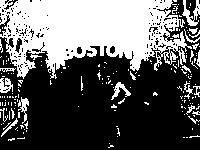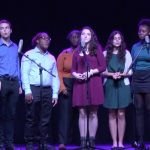Students discuss their trips at Perspective night
In March, over 70 Bowdoin students spent their first week of spring vacation participating in intensive public service projects as part of Alternative Spring Break. Six student-led trips explored issues around the United States, from immigration at the US-Mexican border to art as a tool of empowerment in underserved regions of New York City.
Since 2004, the McKeen Center for the Common Good has supported student-led service trips during winter and spring breaks, allowing students to engage with social problems outside the classroom. Although the trip lasts only one week, the preparation for ASB takes place year-round. Well before spring break, trip leaders develop relationships with nonprofits that are addressing social or environmental issues in their chosen community. Students commit to a weekly seminar to learn about their trip’s issue, educating themselves prior to immersing themselves.
Jessica Piper ’19 said that her trip to Arizona and Mexico “wasn’t just about a week at the border, it was about learning something that will hopefully lead me to further action in the future.” Jae-Min Yoo ’19, who traveled to Pleasant Point, Maine, to work with the Passamaquoddy Native American tribe, described how the experience has stayed with her in the weeks since spring break. “I’m still processing the experiences I had,” she said. The trip “made me think about what it means to preserve a culture. Which aspects of the culture should we try to preserve, and how?”
The questions continue to echo long after students return to campus. Each trip-goer participates in Perspectives, a night the McKeen Center organizes for participants to share their experiences with ASB participants from other trips and with invited Bowdoin faculty and community members. Through small-group discussions, Perspectives highlights the intersectional nature of community service. The night is intentionally held a couple of weeks after the trips to allow participants time to reflect on their experiences.
This year, Perspectives prompted students to consider what “home” means to each individual, how to “truly meet” people encountered through service, and how to ally oneself with marginalized communities. Participants from many different walks of life networked and described how the trips altered their views on community engagement, social change, and the Bowdoin experience.
The Trips:
Learning and Living with the Passamaquoddy (Pleasant Point, Maine)
Students gained insight into Native American communities in Maine by working in a local elementary school and interacting with community members of the Pleasant Point Passamaquoddy Tribe.
*This trip is fully financed by the President’s Office as part of the Bowdoin-Colby-Bates Wabanaki Collaborative.
Leaders: Rayne Sampson ’18 & Sam Mayne ’16
Immigration At The Border in Tucson, Ariz.
Participants studied the immigration debate in the United States, traveling to remote areas of the Arizona-Sonora border to witness the consequences of heightened border security measures such as “prevention though deterrence.” Tucson is at the center of the immigration debate and it is where numerous humanitarian service groups have emerged in response to the border crisis.
Leaders: Rubi Duran ’16 & Bill De La Rosa ’16
Cultivating Communities in Immokalee, FL
Participants engaged in hands-on work and communication with working migrant families in Immokalee, Fla. Key issues addressed included the impact of poverty and income inequality on immigrants’ access to housing, education, and social services. Additionally, the group explored the roles that cultural traits such as language have on shaping immigrant identity and experience.
Leaders: Kevin Hernandez ’18 & Perla Rubi ’17
Call to Action in Philadelphia
Participants examined the history of poverty, food insecurity, and especially housing insecurity in Philadelphia. They worked with agencies that provide supportive housing and coordinate community campaigns to bring about policy changes.
Leaders: Dillon Sandhu ’16 & Gina Stalica ’16
Art as Empowerment (New York, NY)
Participants witnessed the interaction between public art and art education in a city rich with arts programming. They worked with local arts and education institutions, exploring how public art and arts education can be a tool for empowerment in a wide range of communities.
Leaders: Mariah Reading ’16 & Maya Reyes ’16
Surrounding Disability (Hudson, NY)
Dividing time between Boston and upstate New York, participants explored different solutions and struggles concerning disabilities. In Boston they connected with disabled individuals and organizations to understand the daily difficulties and activism specific to a big city. In New York state they wroked at a rural, residential community that demonstrates unique approaches and successes in addressing concerns such as continuing education, transition, independence, and security in a less-structured environment.
Leaders: Daisy Wilar ’18 & Jae-Yeon Yoo ’18
